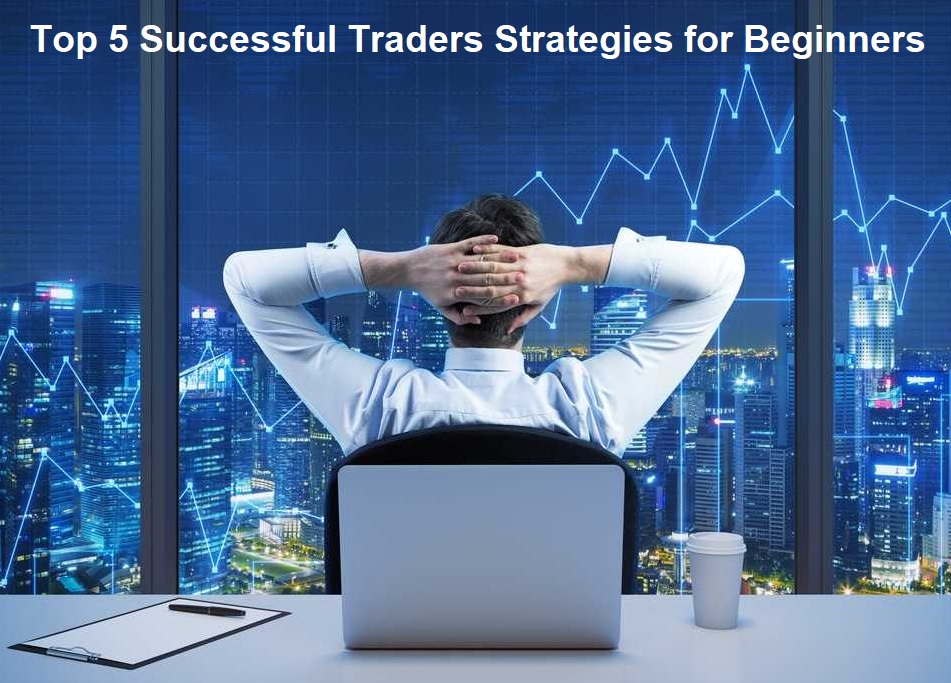Trading the financial markets can be very profitable. But it is also risky, and forex trading can lead to a loss of funds quickly if you don't know what you're doing. If you're new to forex trading, you might be wondering where to start. There's a lot of information out there, but it can be hard to know what's relevant and what is not. Luckily, we've got some tips for you.
Top 5 Successful Traders Strategies for Beginners
1. Only trade with regulated forex brokers
When you start trading, the first thing you need to do is find a good forex broker. You need to make sure that you choose a regulated broker with a good reputation. There are many brokers in the market, so it can be tasking to pick one that is right for you.
When choosing a forex broker, it is important to ensure that they are regulated by one of the top government regulators, such as CySEC or FCA. This means they have been subject to strict regulations and have had their business practices reviewed by an independent body. It also means that they will be able to offer you customer support no matter where in the world you live.
Many brokers claim to be regulated but are not licensed by any government regulator. The best way to check if a broker is licensed or not is by looking at their website or contacting them directly via email or phone call. If they don't mention anything about being regulated, this may signify that something isn't quite right!
2. Educate yourself before trading
As a forex trader, you have to be ready to accept the fact that your success will depend on your willingness to learn. Education is vital, and there are many ways to educate yourself on the subject of trading. It would help if you educated yourself about what is going on in the market at all times. This means that you should have a good understanding of economic events and news, and other factors that affect currencies. It also means getting yourself familiar with the terms used in trading and how they affect currency values.
Many online resources can help you learn more about forex trading, including websites, books, and podcasts. You can also find useful information by joining forums or groups where people share their experiences about trading with each other.
3. Know the risks of forex trading & CFD instruments
The Forex market is extremely volatile. The value of a currency pair can change by hundreds or even thousands of pips in a single day. Forex trading can be very risky if you don't have a sound strategy or understand how markets work. You should only invest money in forex trading that you are willing to lose completely. If you're not prepared for this possibility, you should stay away from forex trading altogether, as there are other ways to make money online that are less risky than forex trading.
In forex trading, you're not buying and selling actual currency — you're buying and selling contracts for difference (CFDs). A CFD is a contract between two parties: The buyer pays the seller a certain amount up front and then pays a certain percentage of the profits made on any price increase when they sell it back to them. Because there's no actual asset being held by either party, this type of trading can be risky because there's no limit on how much money can be lost if things go wrong.
4. Practice on a demo account
It can be hard to know how to practice trading when you're starting. If you don't have a lot of money or are still trying to figure out if trading is for you, then it can be tough to know where to start.
This is where a demo account comes in. A demo account lets you trade using fake money instead of real cash, which means that when you make trades, nothing happens when the market moves against you. You can try out different strategies without risking anything but your time and energy—and without worrying about losing real money! If you find that trading is something you like after all, then you can take the step to get a real account and trade using real money.
5. Always use a stop loss
Stop losses are one of the most important things to learn when trading. You set a price in advance to close out a trade if the market reaches it. Stop losses are designed to help you manage risk by automatically closing out a position when the price reaches a predetermined level. It would be best if you placed the stop loss at a level below your entry price, where you have a high probability that the price will reverse before reaching it.
For example, if you buy EUR/USD at 1.3600 and place a stop loss at 1.3550, then if the price goes up to 1.3700 but then reverses back down to 1.3600, instead of being stopped out at 1.3550 (which would be the case with an ordinary stop loss), it will rise again until it finds enough sellers to push it back down to where you placed your stop loss.
Conclusion:
You have to learn how the forex markets work by doing it. That is the only way you will learn how to trade properly. So don't get discouraged if you lose money in the beginning because that is a part of learning any skill. The most important thing for you to do is to learn everything about forex trading before you actually start trading. You can do that by reading books or simply watching videos on how the forex market works and the different types of forex trades. Also, try and join a forex forum where others traders discuss their thoughts about the market and give advice to other people on how they could get better at trading.








COMMENTS